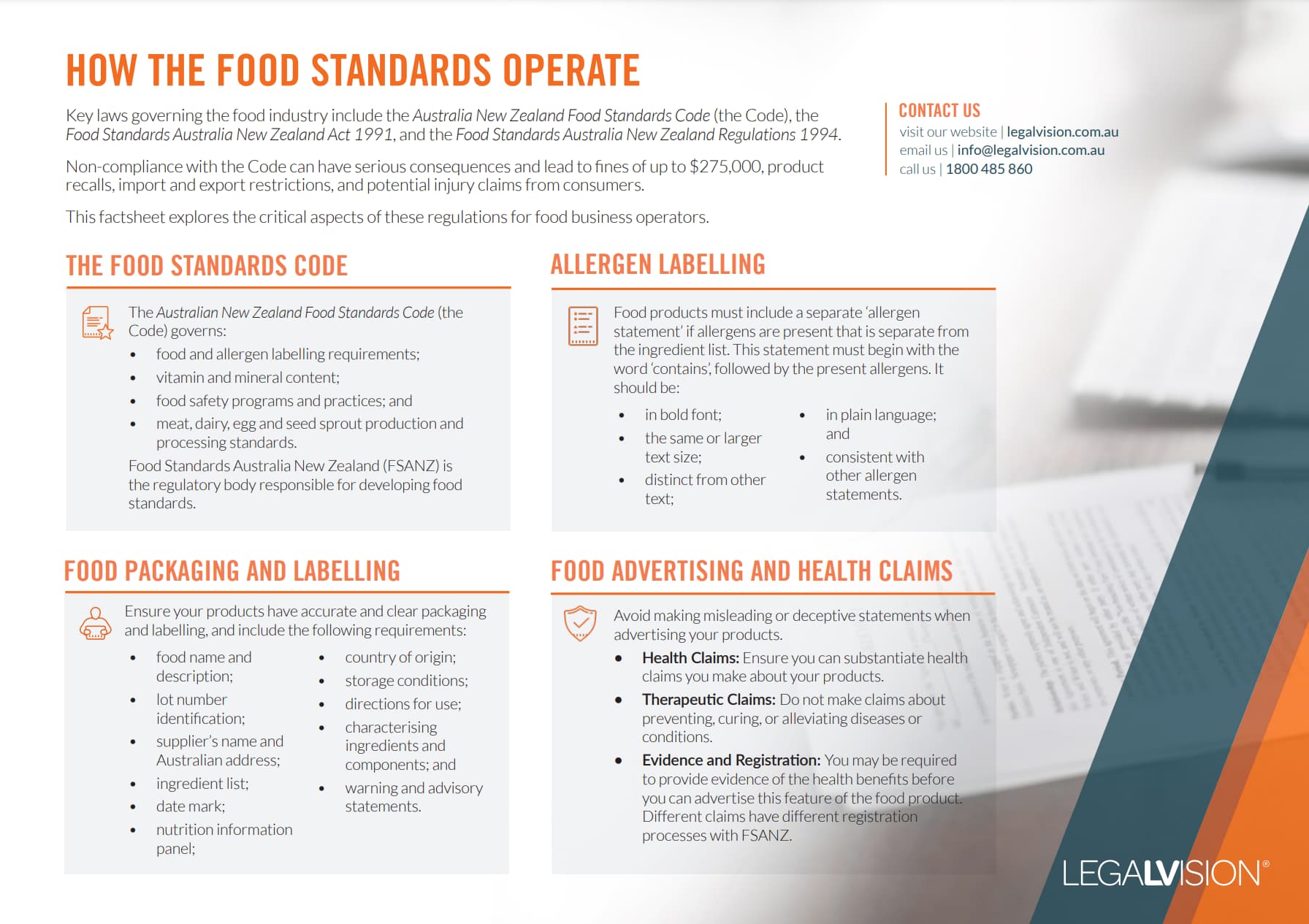If your business in South Australia plans to sell or provide liquor, you must apply for a liquor licence under the Liquor Licensing Act 1997 (the ‘Act’). Having a legitimate liquor licence is therefore important, as it ensures you can lawfully supply alcohol. Without a licence, you and your business may face serious legal or financial repercussions. This article will explain the process of applying for a liquor licence in South Australia.
Which Type of Liquor Licence Do I Need in South Australia?
Understanding the various liquor licence categories in South Australia can be complex. There are currently 11 different categories of liquor licences, each catering to different business needs. These are:
- restaurant and catering licences;
- small venue licenses;
- general and hotel licences;
- club licences;
- on premises licenses;
- packaged liquor sales licences;
- liquor production and sales licenses;
- residential licenses; and
- wine export licenses.
Additionally, there are short-term liquor licences for specific events or extended durations. You can obtain these licences for single events or periods of up to five years.
You should consider whether your business is excepted from needing a liquor licence. This may apply if you, for instance, provide hairdressing services with on-premises alcohol consumption, or if you operate a B&B-style accommodation and adhere to relevant requirements.
If your business sells gift baskets or floral arrangements, you may also may be exempt from licensing requirements. This occurs if you meet specific conditions, such as volume and value thresholds for the included alcohol.
Understanding which licence or exemption is right for your business involves carefully considering your operations and compliance with South Australian liquor laws.
How Do I Apply for a Liquor Licence in South Australia?
Applying for a liquor licence in South Australia is a structured process with several key steps. Importantly, the application process is detailed and can be complex. You may therefore benefit from legal assistance to complete the relevant application. The main application process is outlined below.
1. Determine the Appropriate Licence Type
You will need to obtain and fill out the relevant application carefully and correctly, ensuring all requirements have been satisfied. If you fail to do so, your application may be returned to you for amendment or rejected completely.
2. Complete the Application Form
To ensure you complete the application form correctly, you must satisfy several minimum requirements. These are outlined by the Consumer and Business Services (CBS), which is responsible for liquor regulation and licensing in South Australia.
3. Collect Supporting Documents
You will need to collect the required supporting documents, which are:
- a Risk Assessment and Management Plan (RAMP) outlining management practices and procedures;
- a Community Impact Statement (CIS), which reflects on how your premises will affect community stakeholders;
- two floor plans of the proposed premises;
- a copy of your lease agreement and permission from the landlord (if you do not own the property) or your certificate of title (if you own the property); and
- a capacity assessment from your local council, a private certifier, or a registered architect.
These supporting documents are an essential part of your application; they show that you are prepared to have a liquor licence and understand the responsibilities related to providing liquor in your business. You should exercise care and ensure that you provide all required documents when you apply.
4. Appoint a Responsible Person
A ‘responsible person’ must personally supervise and manage the licensed venue at all times. When you apply for your liquor licence, you will also need to apply to the CBS so they can approve someone of your choosing as a responsible person. This can be you or another person. Part of the application is uploading relevant identification (ID). To be fit as a ‘responsible person’, the ID uploaded must total 100 points. The point value of different IDs depends on their strength. For example, an Australian passport is worth 70 points, and a driver’s licence is worth 40 points.
The applicant must also be a fit and proper person. This judgement is made by the Liquor and Gambling Commissioner, who is in charge of approving your ‘responsible person’ application. When deciding, they consider factors such as honesty, integrity and reputation.
5. Include Partners or Company
If you are applying for a licence as a partnership, you must include all partners on the application, not just the individual responsible for the application. Likewise, if your business is a company, then the applicant must be the company itself.
Continue reading this article below the formHow Much Are Licensing Fees?
When preparing your budget for liquor licensing in South Australia, it is essential to understand the application fees and ongoing licensing costs. CBS fees vary depending on the:
- nature of your business;
- trading hours during which you intend to serve or supply alcohol;
- capacity of the premises; and
- required licence.
As of 28 November 2019, South Australia’s licensing fee structure has changed in accordance with the new categories of licences. This has introduced fee increases, which are outlined in the South Australia Liquor Licensing (Fees) Regulations 2019 (‘Liquor Licencing Regulations’). You can find the most current information on licensing fees on the CBS website and the Liquor Licensing Regulations. Consulting legal professionals familiar with South Australian liquor laws can also assist with navigating the fee structure and licensing process.
How Long Will My Application Take to Get Approved?
Your application with the CBS typically will take 6-8 weeks for approval. However, it is crucial to note that this timeline could be extended if public objections are raised during the advertisement period when your application becomes known to the public. It is essential that you take this approval estimate into consideration when developing your timeline for business development. This will enable you to navigate any potential delays and maintain a well-structured business plan.

This factsheet explores the critical aspects of these regulations for food business operators.
Key Takeaways
Establishing your own bar, restaurant, pub or club in South Australia is an exciting opportunity, but it can be a complicated process. To ensure a successful venture and minimise legal risks, take the time to evaluate your specific liquor licence needs thoroughly. When applying for a liquor licence, ensure that you:
- select the appropriate licence type;
- fill out the application form;
- gather the required documents;
- appoint a reasonable person; and
- follow the specific application guidelines.
If you would like assistance regarding your liquor licence application, contact our experienced food and hospitality lawyers as part of our LegalVision membership. For a low monthly fee, you will have unlimited access to lawyers to answer your questions and draft and review your documents. Call us today on 1300 544 755 or visit our membership page.
Frequently Asked Questions
Consumer and Business Services is the government body responsible for the sale and supply of liquor under the Liquor Licensing Act 1997 in South Australia.
Short term liquor licences are limited, event-specific licences. You may receive one (with event endorsement) for a single event or the duration of 5 years.
Consumer and Business Services may take 6-8 weeks to approve your liquor licence application.
We appreciate your feedback – your submission has been successfully received.












